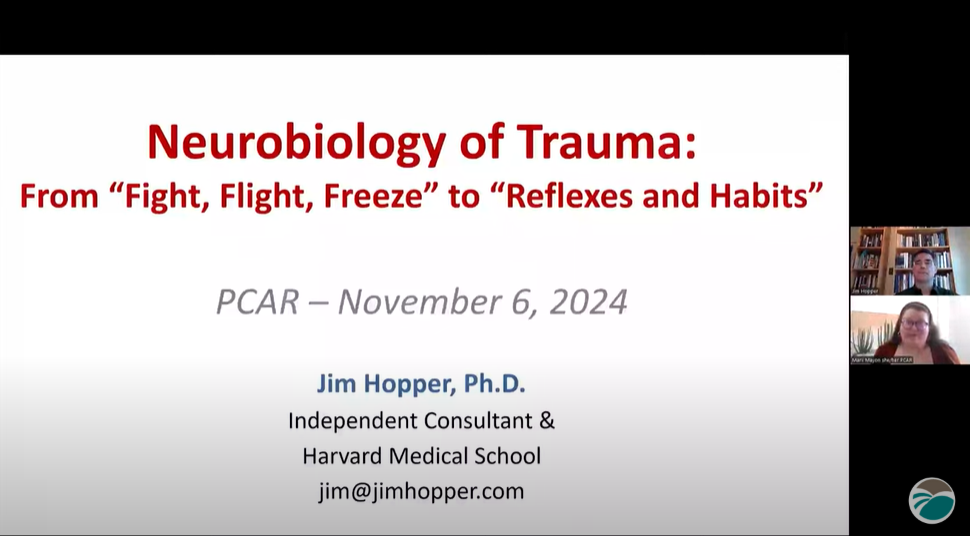
Traumatic experiences have immediate and powerful impacts on the human brain. This webinar explains, in very accessible ways, how stress and trauma can alter brain functioning during sexual assaults and other traumas. Participants will learn about the key brain circuitries impacted by stress and trauma, including the prefrontal cortex and the defense circuitry. Participants will gain increased understanding of brain-based experiences and behaviors – including why "reflexes and habits" is better than "fight, flight, freeze,..." for understanding common behaviors – and learn important implications for their work with victims of sexual assault and other violence. This webinar provides a critical foundation for learning and applying trauma-informed responses with people who have been assaulted.
This project was supported by the PCCD subgrant #36156 by the PA Commission on Crime and Delinquency.